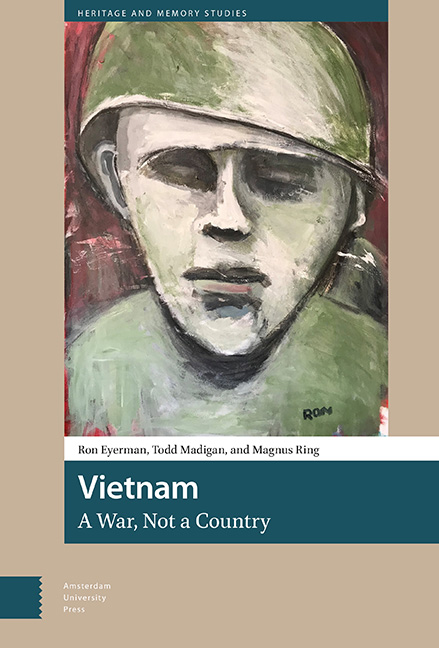Book contents
- Frontmatter
- Table of Contents
- Preface
- 1 Introduction: Cultural Trauma and the American-Vietnamese War
- 2 Cultural Trauma and Vietnamese Arenas of Memory
- 3 The Trauma of Vietnam: The American Perspective
- 4 Journey From the Fall
- 5 Cultural Trauma and Vietnamese-American Arenas of Memory
- 6 Conclusion: War, Trauma, and Beyond
- Index
Preface
Published online by Cambridge University Press: 29 November 2023
- Frontmatter
- Table of Contents
- Preface
- 1 Introduction: Cultural Trauma and the American-Vietnamese War
- 2 Cultural Trauma and Vietnamese Arenas of Memory
- 3 The Trauma of Vietnam: The American Perspective
- 4 Journey From the Fall
- 5 Cultural Trauma and Vietnamese-American Arenas of Memory
- 6 Conclusion: War, Trauma, and Beyond
- Index
Summary
Book production is always a collective effort; this book in particular. The process began in one of those busy cafes near the Yale University campus and is now drawing to a close with its three authors spread around the globe. What started as close interactive collaboration ends through internet contacts. How the work world has changed! Nonetheless, the underlying process reflects three researchers working with one accord to piece together the meaning and memory of a decades-long violent conflict from the divergent perspectives of its various protagonists. Adding to the timeliness—and poignancy—of a project focussed on the trauma of whole societies is the fact that it is being released in 2023, which marks the 50th anniversary of the withdrawal of American combat forces in Vietnam. We look forward to the reception of these efforts.
A book like this is not only a collaborative endeavor among three authors. As we researched this project, we visited a multitude of museums, monuments, memorials, and galleries scattered across the United States and Vietnam, sites whose creation necessitated the collaboration of vast numbers of people and considerable resources. These sites range widely in terms of the way they tell the story of the American-Vietnamese War and the degree to which they continue to impact their visitors. But even more moving than our visits to these sites were the interviews and conversations we had with countless students, scholars, artists, journalists, veterans, and other community members who have been touched in some way by the American-Vietnamese War. Without the generous insights, reflections, and vulnerability of these individuals regarding what for many remains a deeply personal—and often painful—topic, this book would simply not have been possible. It is to you, with gratitude, that we dedicate this work.
As this project has taken shape, we have had the opportunity to present various portions of it at academic conferences across Europe, North America, and Asia, and we wish to express our thanks to the scholarly community that has offered us substantial feedback during these presentations. In particular, our thanks extends to the anonymous reviewers who offered their detailed and nuanced comments on our manuscript, and to the editorial staff at Amsterdam University Press, all of whom have helped improve the book.
- Type
- Chapter
- Information
- Vietnam, A War, Not a Country , pp. 7 - 8Publisher: Amsterdam University PressPrint publication year: 2023

